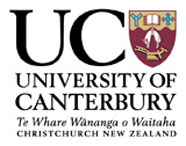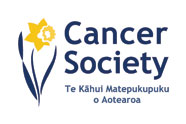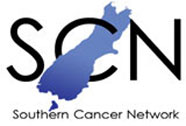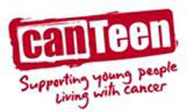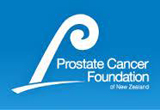Clinical Cancer Services in the Canterbury Region
This page provides information on clinical cancer services, care and collaboration in Canterbury, and how the C4 will be involved in future plans for cancer treatment, collaboration and care.
Cancer treatment in the Canterbury region
Christchurch Hospital is home to the Canterbury Regional Cancer and Blood Service, which serves North and South Canterbury, the West Coast, and much of Nelson/Marlborough.
The majority of patients attend Christchurch Hospital, but others are managed through peripheral clinics including chemotherapy administration in Greymouth, Nelson/Blenheim (supported by resident Medical oncologists), Ashburton and Timaru. Radiation treatment is given at Christchurch Hospital, or by contract at St George's Cancer Care Centre.
The standard of care for malignant disease is prompt with:
- First specialist assessment by the appropriate service, such as surgery or respiratory (lung cancer)
- Streamlined investigations
- Review in the multidisciplinary meeting for that cancer type
- Followed by prompt assessment and initiation of radiation or chemotherapy treatment.
Adherence to the Ministry of Heath's Faster Waiting Times for Cancer Treatment initiative and tumour stream guidelines are driving improved patient flows.
Paediatric Cancer treatment in Canterbury
Christchurch Hospital is home to the Children's Haematology Oncology Centre (CHOC) which serves Canterbury, the West Coast, Nelson/Marlborough, Otago, Southland and the Wellington and Wairarapa regions.
The model of care is to deliver care in the most appropriate setting; so where complexity requires care at the supra-regional centre at CHOC, children and families travel and stay in Christchurch. However, where possible children receive care and less complex chemotherapy near home at shared care centres in Wellington, Nelson, Dunedin and Invercargill. There are also subregional arrangements with Timaru and West Coast Hospitals
The standard of care is that children with a high suspicion of cancer:
- Have a first specialist assessment by the multidisciplinary team in CHOC
- All diagnostic investigations and work up are usually performed in Christchurch Hospital
- New diagnoses are reviewed in the Paediatric Oncology multidisciplinary meeting
- Followed by prompt assessment and initiation of surgery, radiation and/or chemotherapy treatment
Collaboration amongst cancer professionals
The surgical specialists, oncologists and haematologists are totally dependent on collaboration with specialist radiologists and pathologists to establish the type of cancer and its stage (how far it has spread).
Similarly, the interdigitation of surgery and oncology treatments requires close discussion and planning between the involved clinicians. These multidisciplinary interactions are fundamental to modern cancer care.
In turn, the clinicians are supported by scientists and researchers who understand the latest developments in cancer biology and genetics, and in imaging techniques, and can help apply them to clinical situations. The researchers also become aware of clinical problems which their research can help solve.
Cancer Treatment in the future
Currently the burgeoning numbers of cancer patients, due mainly to population growth and increasing age, is forecast to overwhelm existing ways of managing patients. Further information can be found on the Southern Cancer Network website.
More of the care is expected to be from nurses and to occur in the community and in local satellite clinics. Nursing and psychosocial research projects are exploring ways of better supporting patients especially in the community.
The C4 will advocate for plans which support these activities in the redevelopment of the Hospital and UOC campus, and also help link the many groups who will need to collaborate to treat and support our patients and their families.


